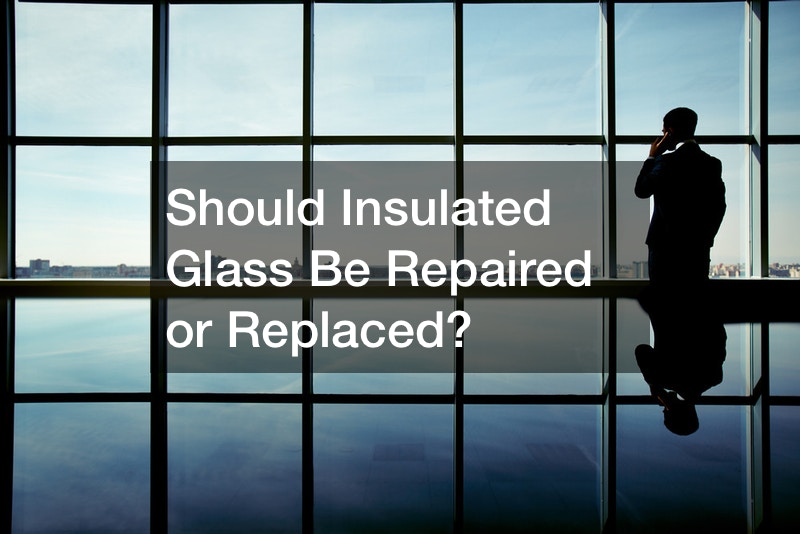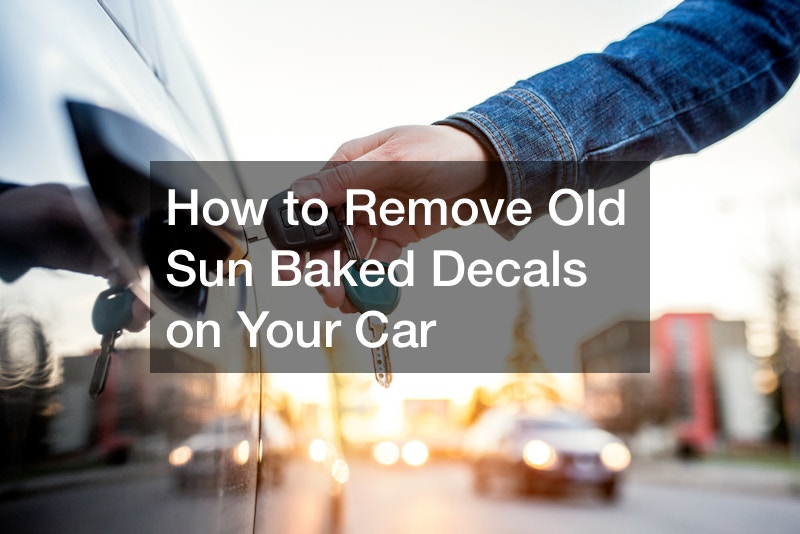How to Take Care of Trailers and RVs

Trailers and RVs are significant investments, offering freedom, convenience, and functionality for travel and work. However, like any vehicle, they require ongoing care and maintenance to stay in top condition. Neglecting proper upkeep can lead to costly repairs, safety concerns, and reduced performance. In this expanded guide, we’ll cover every aspect of trailer and RV care, from routine maintenance to seasonal preparations, ensuring your vehicle remains reliable for years.
Routine Inspections Are Crucial
Routine inspections are your first defense against unexpected breakdowns and expensive repairs. Setting aside time to thoroughly inspect your trailer or RV before and after each trip ensures you catch potential problems early.
Frame and Exterior Components
The frame is the backbone of your trailer or RV, and it endures significant stress during travel. Look for signs of rust, cracks, or other damage, particularly around hitches and joints. Rust on the frame can spread quickly if not treated, weakening structural integrity. For serious concerns, reach out to a local trailer repair service that specializes in structural maintenance.
Windows and Glass
Check windows and glass panels for chips, cracks, or loose seals. Damaged windows can compromise your vehicle’s insulation and weatherproofing. Contact a glass replacement service to address these issues before they worsen. Additionally, consider upgrading with auto glass tinting, which improves privacy, reduces interior heat, and protects your furnishings from UV damage.
Tire Care and Maintenance
Tires are the foundation of a safe and efficient ride. Without proper maintenance, they are susceptible to wear and tear that can lead to dangerous blowouts or inefficient towing.
Regular Pressure Checks
Maintaining proper tire pressure is crucial. Over-inflated tires may wear unevenly, while under-inflated ones can overheat and fail. Always follow the manufacturer’s recommendations for tire pressure, adjusting as necessary based on load and driving conditions.
Tread Inspection
Inspect the tread on your tires to ensure they’re not too worn. Tires with insufficient tread depth reduce traction and increase stopping distances, particularly in wet conditions. Replace tires that show significant wear to maintain safety.
Tire Protection
When your trailer or RV is parked for an extended period, invest in tire covers to shield them from sunlight, dirt, and weather conditions. Prolonged exposure to the elements can cause tires to dry out, crack, and lose elasticity.
Caring for the Exterior
The exterior of your trailer or RV is continuously exposed to harsh weather and road debris. Regular maintenance helps preserve its appearance and prevents damage.
Cleaning and Waxing
Frequent cleaning removes dirt, salt, and road grime that can corrode the paint or metal components. Waxing your trailer or RV twice a year creates a protective barrier against moisture and UV rays, keeping the exterior in pristine condition.
Sealing Leaks
Inspect the seams, seals, and caulking around windows, doors, and vents. If you notice cracks or gaps, reseal them promptly. Leaks can lead to water damage, mold, and rot, which are costly to repair.
Roof Maintenance
The roof is one of the most vulnerable areas of your trailer or RV. Regularly check for cracks, sagging, or other damage. If you discover leaks, repair them immediately to prevent further complications. Using a high-quality roof cover when the vehicle is not in use can also protect it from the elements.
Interior Maintenance for Comfort
A well-maintained interior ensures your trailer or RV feels like home, offering both comfort and functionality during your travels.
Air Conditioning and Ventilation
A properly functioning air conditioning system is essential, especially during hot weather. Clean or replace the filters regularly to keep the system efficient. If you experience cooling issues, consult an air conditioning company for professional servicing or AC repairs.
Plumbing Systems
For trailers with water systems or restroom trailers, the plumbing system requires regular attention. Periodically flush and sanitize tanks to prevent clogs and buildup. Use RV-safe cleaning products to avoid damaging sensitive components.
Appliance Checks
Inspect and maintain all interior appliances, such as stoves, refrigerators, and microwaves. Test them before each trip to ensure they’re in working order. Keep a small toolkit handy for minor repairs while on the road.
Upholstery and Surfaces
Clean and protect interior surfaces and upholstery to maintain a fresh and inviting atmosphere. Use protective sprays on leather or fabric seats to prevent cracking or fading.
Weatherproofing and Storage
Protecting your trailer or RV from extreme weather is essential for long-term durability. Seasonal weather can take a toll on exterior and interior components if precautions aren’t taken.
Use High-Quality Covers
Invest in durable, weather-resistant covers for your trailer or RV. A properly fitted cover protects against rain, snow, and UV rays, which can cause fading, cracking, and rust.
Garage Storage
If you have access to a garage, ensure the garage door is secure and functional. Storing your trailer or RV in a garage reduces exposure to weather and keeps it safe from potential vandalism.
Winterizing
For those in colder climates, winterizing is essential to prevent freezing and cracking in water lines and tanks. Drain all water systems, and add antifreeze to prevent ice buildup. Ensure seals and vents are properly closed to keep out moisture and pests.
Electrical System Maintenance
The electrical system is vital for powering your trailer or RV’s lights, appliances, and other features. Proper care ensures it remains reliable and safe.
Battery Maintenance
Keep your battery charged and clean the terminals to remove corrosion. Inspect for signs of wear, and replace the battery if it’s nearing the end of its lifespan. Consider disconnecting the battery when the vehicle is not in use to prevent unnecessary draining.
Wiring and Connections
Check all wiring for damage or fraying. Loose or corroded connections can lead to power failures or even fires. Keep spare fuses on hand for quick repairs.
Solar Panel Care
For RVs equipped with solar panels, cleaning them regularly maximizes energy absorption. Dust and grime can significantly reduce their efficiency, especially in areas with frequent sun exposure.
Mechanical Maintenance
Trailers and RVs, whether motorized or towed, rely on various mechanical components that need regular attention.
Engine Maintenance
For motorized RVs, routine engine care is non-negotiable. Schedule oil changes, inspect belts and hoses, and check fluid levels before every trip. Neglecting these basics can result in breakdowns and costly repairs.
Suspension and Axles
Non-motorized trailers also require attention to axles, brakes, and suspension. Inspect these components for wear and tear to ensure they’re functioning correctly. If you notice unusual noises or vibrations, consult a local trailer repair service immediately.
Towing Equipment
Check the hitch, safety chains, and towing mechanism for signs of damage or misalignment. Properly lubricate moving parts to prevent rust and ensure smooth operation. Faulty towing equipment can lead to accidents on the road.
Emergency Preparedness
Even the most well-maintained trailer or RV can encounter issues. Preparing for emergencies ensures you’re ready to handle unexpected situations.
Essential Supplies
Carry an emergency kit with tools, spare parts, and first-aid supplies. Items to include:
- Spare tire and jack
- Basic toolkit
- Road flares or reflectors
- Extra fluids (oil, coolant, etc.)
Towing Services
Establish relationships with reliable auto towing services near your travel routes. Having a trusted contact ensures you can get back on the road quickly in the event of a breakdown.
Insurance Coverage
A comprehensive insurance policy is a must for any trailer or RV owner. Work with a vehicle insurance company to ensure you’re covered for accidents, theft, and natural disasters. Keep a copy of your insurance and roadside assistance information in an easily accessible location.
Buying and Selling Trailers and RVs
Whether you’re upgrading to a new model or selling your current one, maintenance plays a critical role in maximizing value.
Selling Tips
When selling, a well-maintained trailer or RV fetches a higher price. Keep detailed records of all repairs, upgrades, and servicing to show potential buyers you’ve taken good care of the vehicle.
Buying Tips
When purchasing a new or used trailer, work with a reputable trailer sale dealer. Look for warranties, inspect for hidden damage, and review maintenance records. A reliable dealer ensures you’re investing in a quality product.
Taking care of your trailer or RV requires consistent effort, but the rewards are worth it. From maintaining the tires and electrical systems to weatherproofing and working with professionals for AC repairs or glass replacement, proactive care ensures your vehicle stays roadworthy and ready for adventures. With proper maintenance, your trailer or RV will continue to provide comfort, reliability, and joy for years to come. Whether you rely on a local trailer repair service, a trusted air conditioning company, or dependable auto towing services, your efforts will pay off in a safer, more enjoyable travel experience.
Tips for Buying RVs and Trailers
Purchasing an RV or trailer is an exciting investment, offering freedom for travel and flexibility for various uses. Whether you’re buying your first RV, upgrading, or looking for a specialized trailer, the decision requires careful thought. A well-informed purchase ensures you get the best value for your money while meeting your specific needs. Here are 500 additional words with tips to guide you through the buying process.
Understand Your Needs and Lifestyle
The first step in buying an RV or trailer is understanding how you plan to use it. Your lifestyle, travel plans, and intended use will heavily influence your decision. Consider the following:
- Travel Habits: Are you planning weekend getaways, long-term road trips, or seasonal stays? Smaller trailers work well for short trips, while larger RVs are better for extended travel.
- Number of Occupants: How many people will be using the RV or trailer? Ensure the layout provides enough sleeping, living, and storage space for everyone.
- Intended Use: Will you be using it for recreational purposes, hauling equipment, or hosting events like mobile kitchens or restroom trailers ? Choose a model designed for your primary use.
Set a Realistic Budget
RVs and trailers come in a wide range of prices, from budget-friendly options to luxury models. Decide on a budget that includes not just the purchase price but also ongoing costs such as maintenance, insurance, and fuel.
- New vs. Used: New RVs and trailers often come with warranties, ensuring peace of mind. However, used models can save you money upfront. If buying used, ask for maintenance records and inspect the vehicle thoroughly.
- Hidden Costs: Don’t overlook additional expenses, including registration fees, storage, and potential upgrades like auto glass tinting or solar panels.
Research Types of RVs and Trailers
Familiarize yourself with the different types of RVs and trailers available. Each type caters to specific needs and preferences:
- Travel Trailers: Lightweight and versatile, these trailers are towed by a vehicle and come in various sizes.
- Fifth-Wheel Trailers: Offering more space and stability, these trailers attach to a hitch in the bed of a pickup truck.
- Motorhomes: Available in Classes A, B, and C, motorhomes combine living quarters with a vehicle, making them ideal for those who prefer an all-in-one solution.
- Utility and Specialty Trailers: These are designed for specific purposes, such as hauling equipment or serving as restroom trailers for events.
Inspect the RV or Trailer Thoroughly
Before committing to a purchase, inspect the RV or trailer to ensure it’s in good condition. This is especially important when buying used models.
- Exterior Inspection: Look for signs of rust, dents, or damage on the frame and body. Check seals around windows, doors, and vents for cracks or wear.
- Tires and Suspension: Examine the tires for tread wear and the suspension for signs of damage or sagging. A reliable local trailer repair shop can assist with a detailed inspection.
- Interior Condition: Inspect the interior for water damage, mold, or other signs of neglect. Test appliances, plumbing systems, and electrical components to ensure everything is in working order.
Check Weight and Towing Capacity
If you’re purchasing a towable trailer, ensure your vehicle can handle its weight. Overloading your vehicle can lead to dangerous handling and increased wear on your tires and suspension. Refer to your vehicle’s owner manual to verify its towing capacity.
- Dry Weight vs. Loaded Weight: Pay attention to both the trailer’s empty weight (dry weight) and its maximum weight when fully loaded (gross vehicle weight rating, or GVWR). Include the weight of passengers, gear, and additional equipment.
- Hitch Compatibility: Ensure your vehicle’s hitch is compatible with the trailer you’re considering. A professional can assist with any necessary adjustments or upgrades.
Review Features and Layout
The layout and features of an RV or trailer significantly impact comfort and functionality. Prioritize features that align with your needs:
- Sleeping Arrangements: Evaluate the size and number of sleeping areas. Families or groups may prefer bunk beds or convertible furniture.
- Kitchen and Appliances: If you plan to cook on the road, look for trailers with well-equipped kitchens, including a refrigerator, stove, and storage space.
- Climate Control: Air conditioning and heating systems are essential for comfort. If the vehicle’s AC system requires upgrades, consult an air conditioning company for advice.
- Bathrooms: Consider whether you need a full bathroom or a simpler setup, especially if you’re looking at restroom trailers for event use.
Test Drive and Maneuverability
For motorhomes and larger trailers, test driving is essential to ensure the vehicle handles comfortably. Practice parking, reversing, and maneuvering in tight spaces. Pay attention to how the vehicle feels on the road, including braking and acceleration.
If you’re new to towing, practice before making your final decision. A stable and easy-to-tow trailer will make your journeys more enjoyable.
Consider Storage and Parking Needs
Think about where you’ll store your RV or trailer when it’s not in use. Some neighborhoods have restrictions on parking large vehicles, so you may need off-site storage. Ensure the garage door or storage facility can accommodate the size of your RV or trailer.
Get a Professional Inspection
Before finalizing a purchase, have the RV or trailer inspected by a professional. They can identify hidden issues that might not be apparent during a casual walkthrough, such as problems with the frame, plumbing, or HVAC systems.
Work with Reputable Dealers
Choose a trusted trailer sale dealer with positive reviews and a history of satisfied customers. A reputable dealer can guide you through the buying process, answer your questions, and provide warranties or additional services.
Finalize Financing and Insurance
If financing your purchase, shop around for the best loan terms. Once you’ve made your decision, consult a vehicle insurance company to secure comprehensive coverage. Proper insurance protects your investment against theft, damage, and liability.
Buying an RV or trailer is an exciting step toward adventure or improved functionality for your needs. By researching, budgeting, and thoroughly inspecting potential vehicles, you can make a confident and informed purchase. Whether you’re consulting a local trailer repair service for expert advice or upgrading with auto glass tinting , thoughtful planning ensures your RV or trailer will provide years of enjoyment and reliability.


